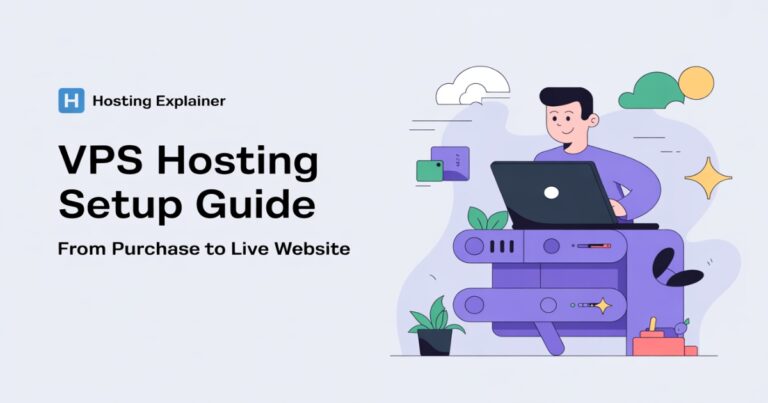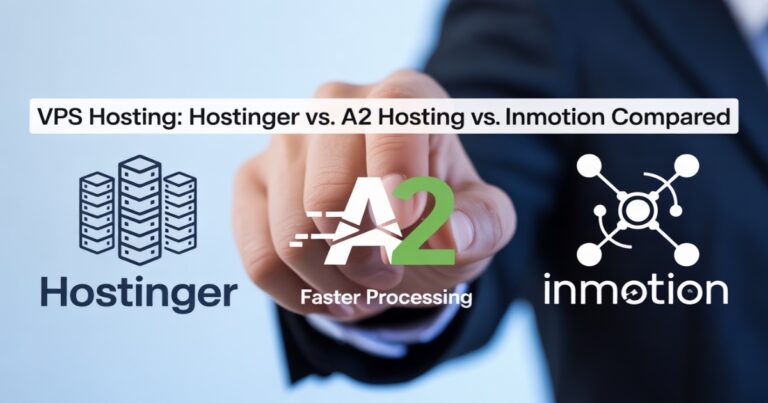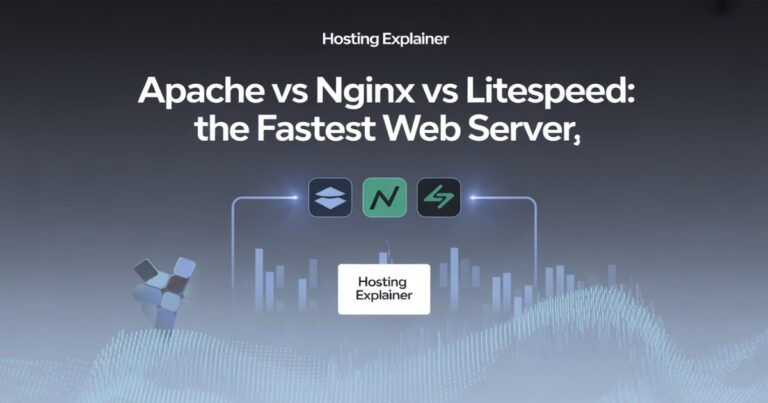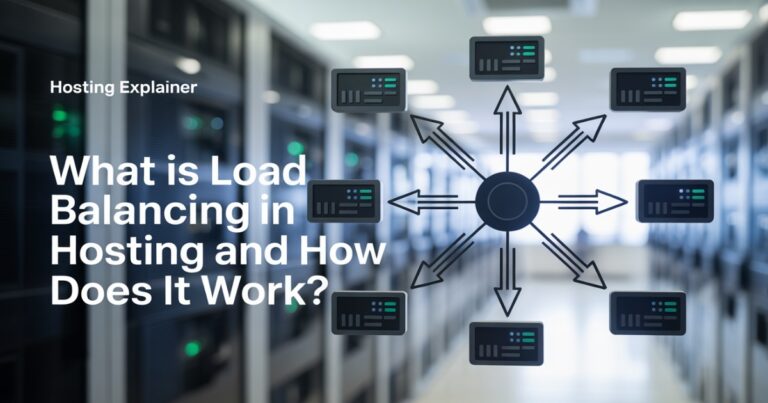Best Hosting for Startups and Small Businesses in 2025 Review
When I first launched my startup, I thought hosting was just another checkbox. I couldn’t have been more wrong. The right hosting shapes everything. Your site speed, your uptime, your security, and even how customers perceive your brand.
If your website is slow or unreliable, users will click away before they even see what you offer. I learned this the hard way. That’s when I realized choosing the best hosting for startups in 2025 isn’t just a technical decision; it’s a business strategy. The right host helps you scale faster, rank better, and stay ahead of competitors.
Why Choosing the Right Hosting Matters for Startups
Your hosting affects every part of your online presence. From page load speed to SEO rankings, it’s the invisible backbone of your website. A one-second delay in loading time can reduce conversions by up to 7%. For a small business, that’s a big deal.
When a hosting provider delivers strong uptime and fast response times, your visitors stay longer. That improves trust and helps your site perform better in search engines. Google favors sites that load quickly and stay secure.
A reliable host doesn’t just keep your site online—it keeps your business running smoothly. In my early days, I lost potential clients because my website crashed during a product launch. After switching to a better host, those problems disappeared overnight. Stability really is growth fuel.

What Startups and Small Businesses Need in a Hosting Provider
- Uptime and Reliability: Look for at least 99.9% uptime guarantees. Every minute of downtime means lost trust and potential revenue.
- Speed and Performance: SSD storage, CDN integration, and caching options keep your site fast during traffic spikes.
- Scalability: Start small but plan big. The right host lets you upgrade resources easily as traffic grows.
- Security and Backups: Firewalls, SSL certificates, and daily backups are essentials, not extras.
- 24/7 Support: Responsive live chat or phone support is crucial when something breaks.
- Transparent Pricing: Avoid providers that double or triple renewal costs. Always read the fine print.
- SEO and Business Tools: Free SSL, optimized servers, and uptime reliability all help rankings and trust.
Types of Hosting Options for Startups
Shared Hosting—For Simple or New Websites
Pros: Affordable, beginner-friendly, perfect for testing ideas.
Cons: Slower and less secure, since you share a server with other sites.
If your startup website is a simple landing page or portfolio, shared hosting works fine for now.
VPS Hosting—For Growing Startups
Pros: Better performance, dedicated resources, customizable.
Cons: Slightly more complex and costlier.
VPS hosting balances speed, control, and affordability.
Managed WordPress Hosting—For Non-Tech Founders
Pros: Automatic updates, backups, and performance tuning.
Cons: Slightly higher pricing, limited flexibility.
If you use WordPress, this is the easiest path—focus on content while the host handles the rest.
Cloud Hosting—For Scalable Growth
Pros: Scales instantly, reliable, high uptime.
Cons: Pay-as-you-go pricing may vary with usage.
Cloud hosting is ideal for startups expecting fast growth or traffic spikes.
Best Hosting Providers for Startups and Small Businesses in 2025
1. Hostinger—Best for Budget Startups
Hostinger is the go-to for early-stage startups on a tight budget. You get strong uptime, a free domain, and easy WordPress setup—all for a few dollars a month. Despite the low price, performance stays solid, even during traffic peaks.
2. SiteGround—Best for Reliability and Support
SiteGround’s customer support is among the best in the industry. They focus on performance, daily backups, and proactive security. It’s ideal for small businesses that can’t afford downtime or slow speeds.
3. Bluehost—Best for WordPress-Based Startups
Bluehost is beginner-friendly. It includes a free domain, SSL, and one-click WordPress installation. Their dashboard is clean and simple, making it a great choice for founders who want to launch quickly without tech headaches.
4. Cloudways—Best for Scalable Cloud Hosting
Cloudways blends the power of cloud platforms like AWS and DigitalOcean with a simple management layer. You get cloud-level performance without needing a developer to handle it. It’s ideal for startups expecting fast growth.
5. A2 Hosting—Best for Speed and Developer Tools
A2 Hosting focuses on raw speed. Their “Turbo Servers” are built for performance-heavy sites. Developers love its flexibility, while non-tech founders benefit from reliable uptime and fast support.
| Provider | Best For | Key Features | Price Range | Ideal For |
|---|---|---|---|---|
| Hostinger | Budget startups | 99.9% uptime, fast, free SSL | $2–$5/month | New startups |
| SiteGround | Reliability | Daily backups, strong support | $3–$10/month | Small businesses |
| Bluehost | Ease of use | Free domain, WordPress setup | $3–$8/month | Beginners |
| Cloudways | Scalability | Cloud performance, flexible plans | $10–$20/month | Fast-growing startups |
| A2 Hosting | Speed | Turbo servers, developer tools | $1–$15/month | Tech teams |
If you’re serious about performance and want a host that can handle traffic spikes without breaking a sweat, A2 Hosting is a solid pick.
It’s especially great for startups with technical teams who value control, speed, and reliable uptime. For non-developers, the intuitive dashboard and fast customer support make it surprisingly easy to manage.
How to Choose the Best Hosting for Your Startup
Here’s a simple step-by-step method that works for every founder:
- Define your website’s purpose. Is it an eCommerce site, portfolio, or app landing page?
- Estimate traffic. Start small if you expect light traffic; upgrade later if needed.
- Set a clear budget. Include renewal fees and add-ons like domain and email.
- Check scalability. Ensure you can upgrade easily when traffic grows.
- Compare uptime and speed. Use review data or monitoring tools.
- Look at support options. Good support can save hours during downtime.
- Consider extra tools. Free CDN, SEO plugins, or analytics can add real value.
The goal isn’t just to get online; it’s to stay online, fast and secure, as your business grows.
How Better Hosting Boosted My Startup
When my first startup switched from shared hosting to managed cloud hosting, the difference was night and day. Our site loaded three times faster, our bounce rate dropped, and conversions increased by 15%.
We also noticed a boost in SEO. Faster load times meant higher engagement, which improved rankings. Reliable hosting didn’t just make the site stable. It made the whole business feel more professional.
That experience taught me this: hosting is not a cost. It’s an investment that pays for itself through better performance and customer trust.
Common Mistakes Startups Make When Picking Hosting
- Choosing only by price. Cheap hosts often limit bandwidth and slow your site.
- Ignoring scalability. Migration later can break your site or lose data.
- Skipping backups. One server error can wipe everything.
- Overlooking customer support. A fast reply can save your business during downtime.
- Not reading renewal terms. Prices can jump after the first year.
If you avoid these mistakes, you’ll save time, money, and a lot of frustration down the road.
FAQs: Best Hosting for Startups and Small Businesses
1. What’s the best web hosting for startups in 2025?
Hostinger, SiteGround, and Cloudways lead the pack for reliability, performance, and scalability.
2. Is shared hosting good for small businesses?
Yes, but only for early stages. As traffic grows, upgrade to VPS or cloud hosting.
3. Which hosting offers scalability for startups?
Cloudways and A2 Hosting are best for startups expecting fast growth.
4. Does hosting affect SEO and website speed?
Yes. Hosting directly impacts loading time, which affects both SEO and user experience.
5. What’s the most affordable hosting option for startups?
Hostinger is the most budget-friendly, offering quality performance at a low cost.
Picking the Right Hosting for Long-Term Growth
Finding the best hosting for startups and small businesses in 2025 isn’t about picking the cheapest plan. It’s about finding a host that grows with you. Look for stability, honest pricing, and real support.
Think of your hosting as your digital foundation. If it’s weak, everything on top of it will struggle. But if it’s strong, your website and your business can scale without fear.
Start small, stay smart, and pick a host that keeps pace with your ambition. The right hosting won’t just keep your site online, it’ll help your startup thrive.






